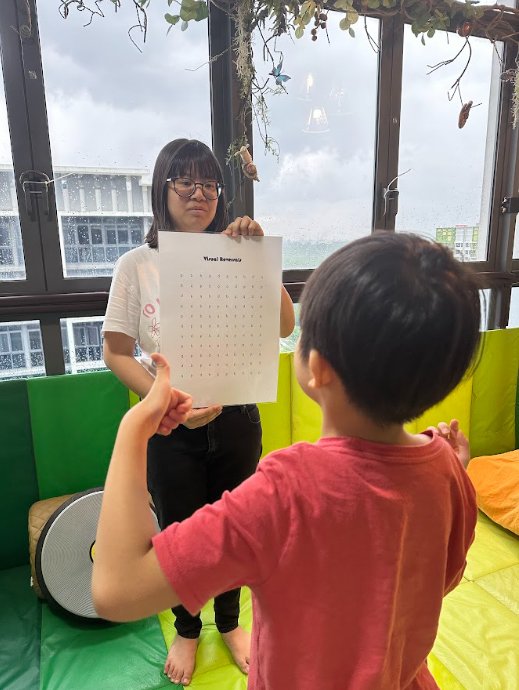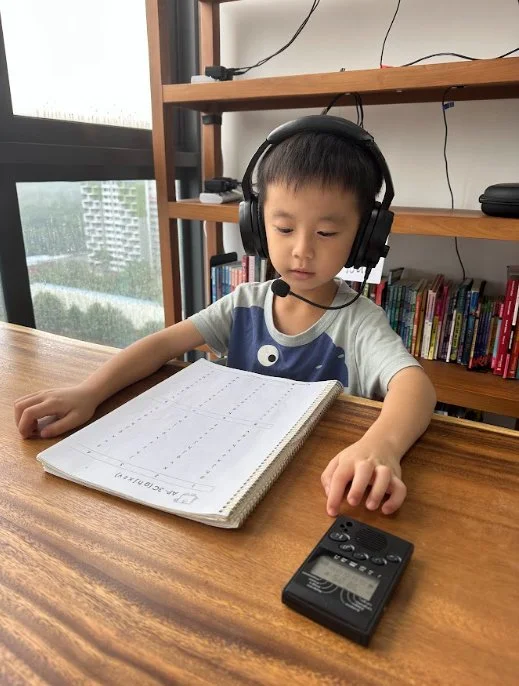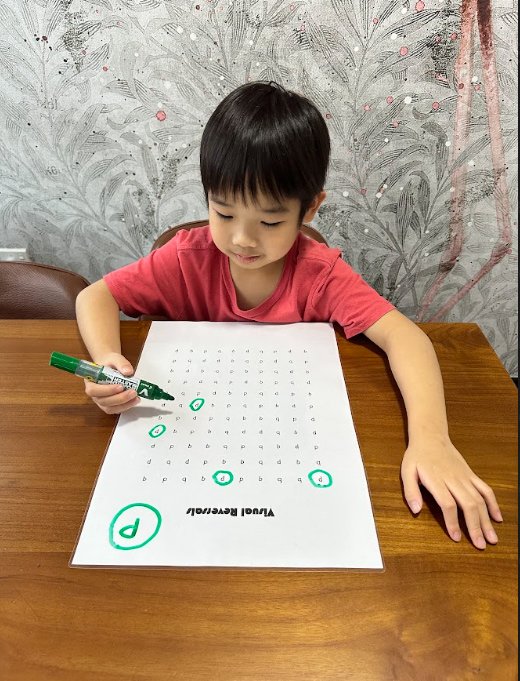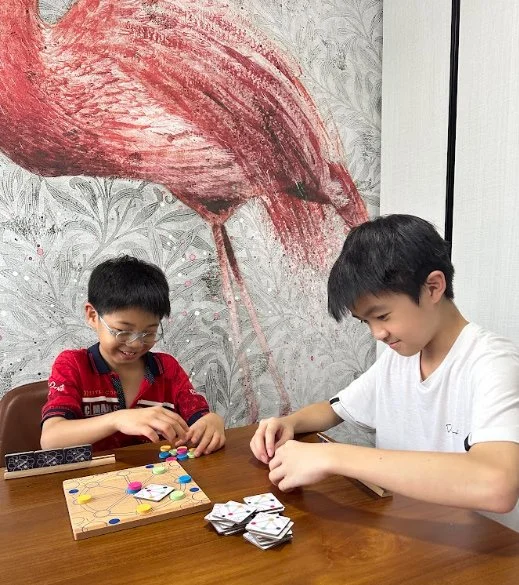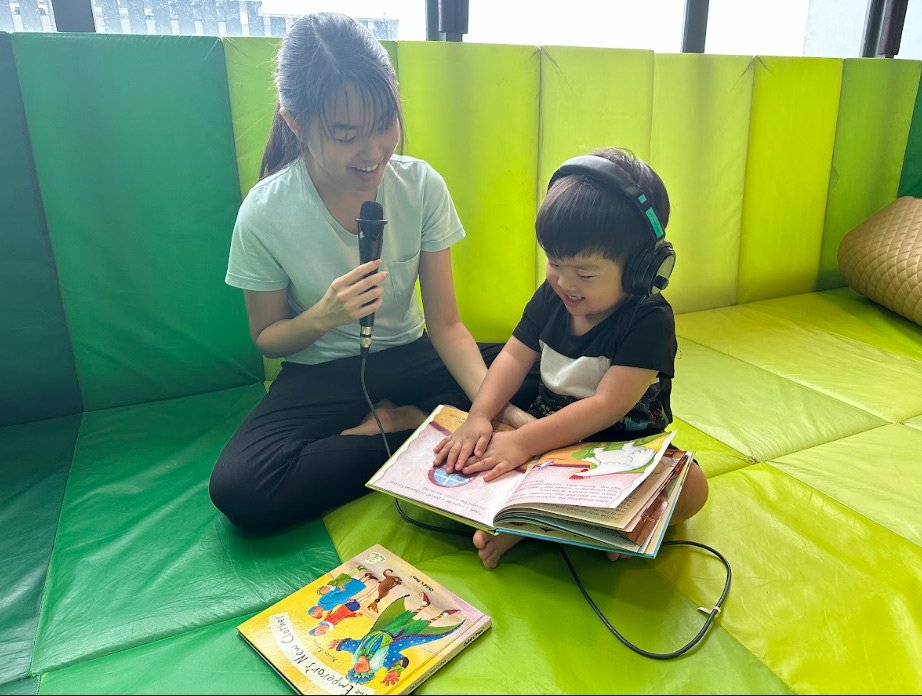READING PROBLEMS & DYSLEXIA
EFFECTIVE DYSLEXIA THERAPY AND INTERVENTION PROGRAMS
TO TREAT READING PROBLEMS
Is your child struggling with reading? Our expert dyslexia therapy and intervention programs are designed to help children overcome common reading problems.
With our expert diagnosis, tailored programs, and a supportive environment, we address a wide range of dyslexia types and common reading problems.
Comprehensive 1-to-1 Dyslexia Test
Our comprehensive 1-to-1 dyslexia test assesses an individual's reading and language abilities & their natural competency for it.
This personalised approach ensures we understand the unique challenges your child faces, allowing us to tailor our programs to meet their specific needs.
Risk Assessment
Understanding the risk of literacy delay is crucial. Our risk assessment helps determine the likelihood of literacy issues, enabling early intervention and more effective dyslexia therapy.
Early detection is key to providing the right support at the right time.
Tailored Dyslexia Intervention Programs
No two children are the same, and neither are their needs. Our dyslexia intervention programs are uniquely tailored to each child, providing personalised support based on their specific challenges and strengths.
Our tailored approach ensures the best possible outcomes for your child.
Free Consultation and Evaluation
We believe every child deserves the chance to succeed, which is why we offer a free initial consultation and evaluation.
This no-cost, no-obligation meeting allows us to understand your child's needs and explain how our dyslexia therapy can help.
Expert Diagnosis
Diagnosing dyslexia requires thorough testing and consideration of various factors.
Our team of experienced professionals uses the latest diagnostic tools and techniques to provide an accurate diagnosis, ensuring your child receives the most effective dyslexia treatment.
WIDE RANGE OF DYSLEXIA CATEGORIES AND THEIR SIGNS AND SYMPTOMS
We offer support for various types of dyslexia. Identifying the signs and symptoms of each category early is crucial for effective intervention. Dyslexic children are often mistakenly perceived as “careless” or “inattentive.” Below is a list of dyslexia categories—do keep an eye out for these signs if you suspect your child may be dyslexic. Early identification is vital, as it can help prevent further learning difficulties in the future.
1) Developmental Dyslexia
Comprises two subtypes:
Primary Dyslexia: Caused by genetic and hereditary factors.
Secondary Dyslexia: Results from brain development issues during early pregnancy.
2) Acquired / Trauma Dyslexia
Caused by brain injury or emotional trauma.
3) Surface Dyslexia
Characterized by difficulty recognizing words by sight. Symptoms include:
Slow reading rate
Difficulty with word recognition, limiting vocabulary
Spelling challenges
Trouble reading words that don’t sound the way they are spelled
Letter reversals (e.g., p–b, d–q, E–3, 6–9)
Word or sound reversals (e.g., dog–god, form–from)
Difficulty retaining learned letters or words
4) Visual Dyslexia
Involves difficulty with visual processing of text. The brain struggles to interpret the full picture seen by the eyes. Children with this type of dyslexia often find reading challenging. Symptoms include:
Difficulty tracking text
Text appears blurry or seems to move across the page
Headaches and eyestrain, affecting attention
Missing punctuation and capitalization within sentences
Preference for pictures over text
Poor reading comprehension
5) Rapid Naming Dyslexia
Difficulty pronouncing and reading numbers, colors, and letters, even though the child knows what they are. They take longer to recall the correct word. Symptoms include:
Slow response to words
Omitting or substituting words
Slower processing speed
Confusion with directions
6) Phonological Dyslexia
Involves difficulty with phonetic sounds and breaking words into syllables. This is the most common type of dyslexia. Symptoms include:
Spelling issues
Trouble with phonetic sounds
Struggles in learning and remembering new words
Difficulty recognizing familiar words
Slow reading
Avoidance of reading activities
Difficulty retaining auditory information, leading to a short attention span
Our experts are skilled in recognizing these symptoms and providing appropriate intervention programs tailored to each child's needs.
Friendly and Supportive Environment
At Assumption Learning, we pride ourselves on creating a friendly and supportive environment for all our clients.
Our consultants are dedicated to helping each child succeed, providing encouragement and support every step of the way.
How It Works
Step 1: Free Consultation
Contact us today to schedule your free consultation and evaluation. We’ll discuss your concerns and provide an initial assessment of your child’s reading and language abilities.
Step 2: Comprehensive Dyslexia Test
Our detailed dyslexia test will assess your child’s reading and cognitive skills, identifying specific areas that need support and intervention.
Step 3: Personalised Intervention Plan
Based on the test results, we’ll create a tailored dyslexia intervention program specific to your child’s needs. Our goal is to provide the most effective dyslexia therapy to help your child thrive.
Step 4: Continuous Support and Monitoring
We offer ongoing support and regular progress monitoring to ensure that your child continues to improve and achieve their reading and language goals.
Frequently Asked Questions on our Dyslexia Therapy
-
Dyslexia is a common learning difficulty that primarily affects reading and spelling. It is not linked to intelligence, but rather to how the brain processes written and spoken language.
-
Yes it is, specifically classified as a Neuro Developmental Disorder as it affects a child’s language and cognitive ability to learn reading, writing and spelling skills during developmental years which is commonly referred as ‘developmental dyslexia’, which is the most common form of dyslexia.
-
Common signs of dyslexia include difficulty reading, spelling issues, confusion with directions, and trouble with phonetic sounds. Our comprehensive dyslexia test can provide a definitive diagnosis.
-
Possibly, but not always. Younger children may write letters backwards or upside down, but they may not have dyslexia. Likewise, some dyslexic children can self-correct their letter reversal issues but continue to exhibit other symptoms. You may consult us to assess and look at all the other signs to tell if your child might have dyslexia.
-
We address a wide range of dyslexia types, including developmental dyslexia, acquired / trauma dyslexia, surface dyslexia, visual dyslexia, rapid naming dyslexia and phonological dyslexia
-
Dyslexia is a lifelong condition, so it will never fully go away, but when your child receives appropriate treatment, your child should be able to overcome most of his or her weaknesses.
-
No. Dyslexia can affect other languages too, including Chinese. Which is why we offer a Chinese Dyslexia Program as part of our Dyslexia Therapy.
-
Yes. But it’s not an eyesight problem. Dyslexia is a language-based learning disorder. It affects Visual Processing which can be caused by vision problems which affects eye tracking, eye teaming etc. It is also regarded as an auditory processing difficulty with phonological awareness, auditory memory and processing speed issues.
-
Assumption Learning’s therapeutic dyslexia treatments such as Vision Therapy, Cognitive Brain Training, Auditory Processing and Spatial Motor Movements can help to change neural pathways, which makes learning become easy and independent.
-
Yes, it does, and this is quite common. It frequently co-occurs with one or more other developmental difficulties, including Developmental Language Disorder, Dyscalculia, ADHD, Dyspraxia. But these are not, by themselves, markers of dyslexia. These co-occurring conditions may influence the way dyslexia presents and how it is managed.
-
It depends on your child’s dyslexic conditions and the severity. Most children improve 3 to 6 months after therapy commerce.
-
It is ideal to begin with early intervention for students with dyslexia. If you suspect your child seems to exhibit Dyslexia traits or are slow in learning phonics or reading, you can consult us for a free early assessment. We offer early intervention programs for children as young as 4 years old. Most often, parents only recognize the signs of dyslexia when their child is at a stage where he or she is struggling with reading.
-
Traditional tuition involves improving academics by teaching them through methods like route memorisation, repetition, and practice.
Dyslexia Therapy provides healing treatment that targets the underlying root cause of the condition and addresses the specific neurological differences that cause dyslexia. It escalates your child’s skills in learning and processing ability with the aim of being more confident and independent learners in school.
-
We offer a free initial consultation and evaluation to understand your child's needs and explain how our dyslexia intervention programs can help.
-
Our dyslexia therapy is tailored to each child's unique needs, providing personalised support and using the latest diagnostic tools and techniques for an accurate diagnosis.
-
Simply contact or whatsapp us via phone +65 9699 5206, email enquiry@assumptionlearning.com, or our website to schedule your free consultation and evaluation. We're here to help your child overcome their reading problems and achieve their full potential.
BOOK A CONSULTATION
We offer a general Pre and Post evaluation test where we assess your little one’s milestone delays for speech and language development. Drop us an enquiry or book a consultation now!

